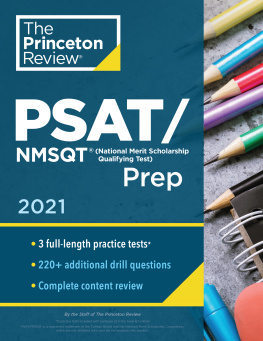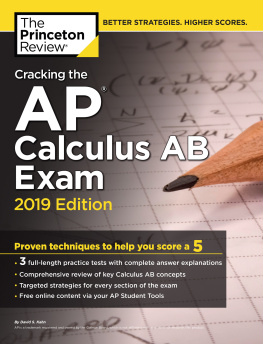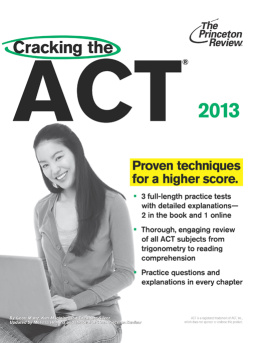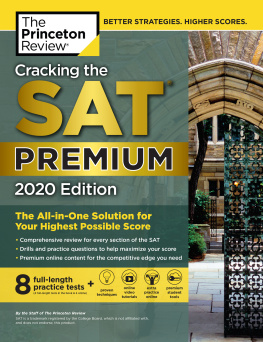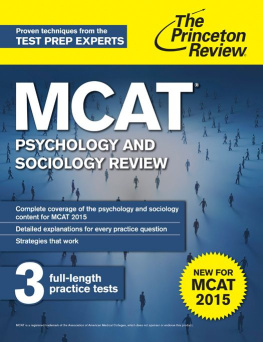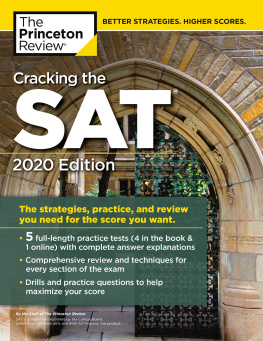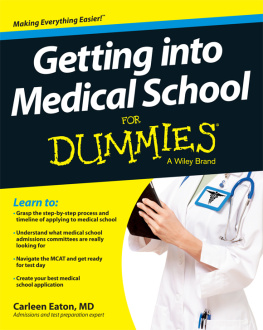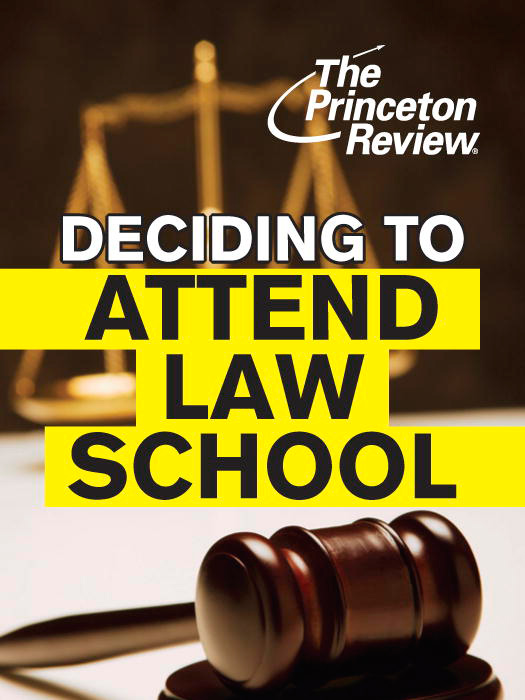
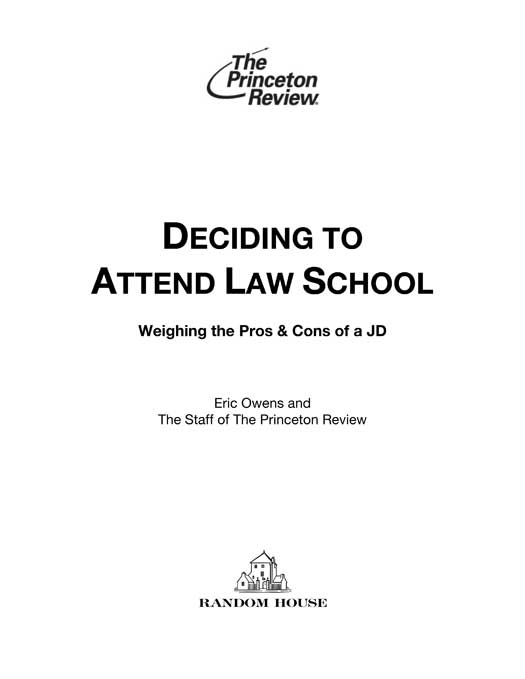
The Princeton Review, Inc.
111 Speen Street, Suite 550
Framingham, MA 01701
E-mail:
Editorial
Rob Franek, VP Test Prep Books, Publisher
Laura Braswell, Senior Editor
Selena Coppock, Editor
Meave Shelton, Editor
Calvin Cato, Editor
Random House Publishing Team
Tom Russell, Publisher
Nicole Benhabib, Publishing Manager
Alison Stoltzfus, Managing Editor
Text copyright 2012 by The Princeton Review, Inc.
Cover copyright 2012 by Random House, Inc.
Front cover art Design Pics Inc./Alamy.
All rights reserved. Published in the United States by the Princeton Review, an imprint of Random House, Inc., New York.
Distribution of Reported Full-Time Salaries graph reproduced by kind permission of the National Association for Law Placement (NALP). NALP Notes:This graph is based on 18,398 salaries. A few salaries above $200,000 are excluded for clarity. The left-hand peaks of the graph reflect salaries of $40,000 to $65,000, which collectively accounted for about 48% of reported salaries. The right-hand peak shows that salaries of $160,000 accounted for about 18% of reported salaries. However, more complete salary coverage for jobs at large law firms heightens this peak and diminishesthe left-hand peaksand shows that the unadjusted mean overstates the average starting salary by about 9%. Nevertheless, as both the arithmetic mean and the adjusted mean show, relatively few salaries are close to either mean figure. For the purposes of this graph, all reported salaries were rounded to the nearest $5,000.
Average Amount Borrowed for Law School chart reproduced by kind permission of the American Bar Association (ABA). This information or any or portion thereof may not be copied or disseminated in any form or by any means or stored in an electronic database or retrieval system without the express written consent of the American Bar Association.
Visit us on the Web! www.randomhouse.com/princetonreview
Educators and librarians, for a variety of teaching tools, visit us at randomhouse.com/teachers
ISBN 978-0-307-94499-3 (ebook)
A Princeton Review Ebook Original
Random House supports the First Amendment and celebrates the right to read.
I NTRODUCTION
WHAT THIS BOOK IS
Should you you , particularlygo to law school in the immediate future? Thats the question this humble little tract will help you answer. The goal here is to give you the good, the bad, and the ugly concerning the current conditions in the law school world and the legal market in the most objective way possible. Then, armed with that information, you can make the best decision for youwhatever that decision is.
WHAT THIS BOOK IS NOT
This book is not a guide to law schools. We do drop the names of plenty of schools, and we provide quite a bit of information about quite a few different law schools, but its all pretty anecdotal except for a handful of lists at the end. We think (and certainly hope!) youll find these lists very useful, but if you are looking for a comprehensive set of qualitative or quantitative information about law schools, youre looking in the wrong place.
The best collections of qualitative and quantitative information in a single place, incidentally, can be found in The Best 167 Law Schools , a book by The Princeton Review, and the Official Guide to ABA-Approved Law Schools , a book published by the Law School Admission Council. A lot of information is available for free at princetonreview.com and lsac.org.
C HAPTER 1:
I S A L AW C AREER F OR Y OU ?
Exactly what is it about a career in law that you find appealing? Its something youll want to think about, because this exact question is likely to be the one youll have to answer on your personal statement. Writing about yourself often proves to be surprisingly difficult. Its certainly no cakewalk explaining who you are and why you want to go to law school, and its not made any easier by the fact that you have to present your lifetime of experiences ina mere two pages.
However, lets be honest here: The reasons youre going to give to an admissions committee arent necessarily the reasons you really, actually want to attend law school. Theres certainly nothing wrong with that; its an aspect of the admission game everybody plays. You need to persuade the admissions committee that youll be an asset to their campus, expand diversity in their student body, bring passion and enthusiasm into theclassroom, etc., etc., and you have to write a certain kind of essay to convey that. But this early in the process, when youre considering whether or not to actually write those essays and apply to school, you do want to be honest with yourselfreally, truly, and deeply. With real self-reflection in mind, and just between us, lets consider some of the common reasons people decide to go to law school.
LAWYERS TYPICALLY HAVE CAREER STABILITY AND MAKE GOOD MONEY
In terms of offering career stability, few professional pursuits have traditionally compared to law. Moreover, the financial rewards of practicing law can be immensely lucrative. Even though these basic assumptions have been challenged in recent years (see ), in general, people with law degrees can still make a whole lot of money over the course of their careers. It would be nice tostart out with a six-figure salary and a corner office with a stunning view, which is what many people think the typical J.D. slides into right after passing the bar. This isnt necessarily true, of course (well touch on that later), but even if you have to start out at a so-so salary and a cubicle, a law degree provides the potential to earn wads of cash eventually or, at least to carve out a comfortable middle-class existence. The fees attorneys charge and the salariesthey make vary greatly depending on geography and the kinds of legal services provided, but its fair to say that lawyers tend to enjoy a nice livingand sometimes an absurdly opulent lifestyleno matter where they live or what kind of law they practice.
CAREER SATISFACTION CAN BE VERY HIGH
A legal career can provide intellectual challenge and a lifetime of interesting, stimulating work. Pretty much every area of law involves complex, abstract concepts. You get to work with people who are pretty smart and sophisticated and generally on the ball, too. The cases lawyers argue, the deals they close, and the corporate affairs they handle can be very high-profile. You also really have to master whatever area of law you are practicing if you want tobe successful and obtain the results your clients want. Theres something profoundly satisfying about achieving that mastery. Also, the stakes are high. In almost any courtroom setting, somebody is going to win and somebody is going to lose. A patent is going to be acquired or it is not. Mergers and acquisitions are going to happen or they are going to fail, and its pretty much on you either way. If you like high stakes, law is a good option. Its exciting to argue a case infront of a jury or consummate a $100 million real estate transaction. The process can be thrilling and, when you are successful, the outcome can be exhilarating.
CAREER SATISFACTION CAN ALSO BE APPALLINGLY LOW
That being said, however, there are a lot of unhappy lawyers out there, and one big reason for their unhappiness is that they just dont like the work they do. Hard statistics are difficult to come by, but anecdotal evidence suggests that lawyers leave the profession at relatively high rates. (Just Google leaving law, attorney career change, or non-legal jobs for lawyers to get a sampling of the discontent out there, if you dare.) Partially this isbecause many lawyers find to their surprise that not all legal work is interesting and challenging. The practice of law can be dry and tedious. Its ridiculously detail-oriented. A substantial amount of legal work is just mind-numbingly dull. You could end up prosecuting speeding tickets, stuck in the hell of document review, or just representing people or companies you have ethical problems with or, for whatever reasons, simply cant stand. And even if you are doingsomething undeniably cool, much of the time you spend at work will feel lackluster at the very best. Hours can be long. Theres also a lot of pressure, and you have to deal with people who are stressed out, or angry, or caught up in incredibly sad situations.


